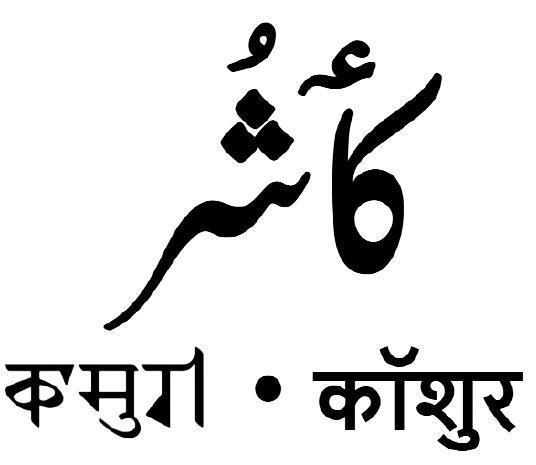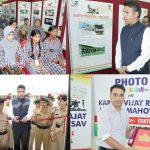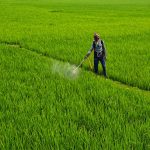Language is a fundamental aspect of human culture and society, allowing people to share information, express emotions, and build relationships. There are thousands of languages spoken around the world, each with its own unique structure and vocabulary, reflecting the diversity of human experience. People speak more than a thousand languages in the Indian Subcontinent. Kashmir is one of the 22 languages recognized by the Indian Constitution’s Eighth Schedule.
More than 7 million people speak the Kashmiri language. Locally, the Kashmiri language is known as “Koshur.” This language is part of the Indo-Aryan language family. The 10th century A.D. saw the standardization of Kashmiri, as noted by eminent historian Professor Upinder Singh in her book, A History of Ancient and Early Medieval India: From the Stone Age to the 12th Century. Professor Suniti Kumar, a famous Indian linguist, has divided the development of Kashmiri into three stages: 1200 to 1500 A.D. (Old Kashmiri), 1500 to 1800 A.D. (Middle Kashmiri), and New or Modern Kashmiri after 1800. Various languages, including Sanskrit, Persian, and Urdu, influenced its development due to historical and cultural interactions in the region.
The language has a rich linguistic and cultural heritage, reflecting the diverse influences of the region. Previously, Kashmir developed the Sharada script for writing this language. The Jammu and Kashmir government, as well as the Jammu and Kashmir Academy of Art, Culture, and Languages, officially recognize the Kashmiri Perso-Arabic script as the script for this language. In 2020, the Union Territory made it the official language for the first time, alongside Dogri, Hindi, Urdu, and English. Prominent figures include the poetess Lal Ded (Lalleshwari), known for her mystic verses, and Sheikh Noor-ud-din Noorani (Nund Rishi), a revered saint and poet.
The Kashmiri language, despite its rich heritage and cultural significance, faces numerous challenges that threaten its vitality and use among its speakers. Urbanization and migration have a significant impact on language use. In urban areas, the preference for languages like Urdu and English in workplaces, social settings, and educational institutions discourages the use of Kashmiri. Additionally, Kashmiri-speaking families who migrate to other parts of India or abroad may adopt the dominant language of their new environment, leading to a decline in Kashmiri intergenerational transmission.
The transmission of a language from one generation to the next is crucial for its survival. In many families, especially those living in urban areas or outside the Kashmir Valley, there is a trend towards speaking Urdu and English at home. This trend is now evident in rural areas, too. The shift reduces children’s exposure to and proficiency in Kashmiri. There is a shortage of trained teachers proficient in Kashmiri, and those who are available often lack adequate teaching materials and support. This situation leads to suboptimal language teaching, which affects students’ ability to learn and appreciate Kashmiri.
Proficiency in widely spoken languages like English is often considered essential for economic success and career advancement in a globalized economy. This perception drives many parents to prioritize the teaching of English and other major languages over Kashmiri, considering it economically less beneficial for their children’s futures. The digital revolution has revolutionized the use and preservation of languages. However, the digital presence of the Kashmiri language is limited. There are fewer online resources, applications, and digital content available in Kashmiri compared to more widely spoken languages. This digital divide reduces opportunities for young people to engage with their native language through modern platforms.
To promote Kashmiri in education, media, and public life, stronger government policies are required. Developing comprehensive educational programs, including teacher training and resource creation, can enhance Kashmiri teaching and learning. In fact, the government has mandated Kashmir as a compulsory subject up to the 9th grade. However, a significant amount of work remains. Increasing the production of Kashmiri content in digital media and leveraging technology can help engage younger generations.
Encouraging community-driven initiatives and fostering a sense of pride in the language can aid in its preservation. Promoting Kashmiri literature, music, and arts can enhance their cultural significance and encourage their use. Kashmiri is a vital part of Kashmiri culture and national identity, not just a language. It reflects their history, traditions, and worldview. Festivals, folklore, and traditional music and dance often incorporate the language, preserving and celebrating the region’s rich heritage.
(Author is Doctoral Fellow, Department of History, Maulana Azad National Urdu University, Hyderabad. Feedback: [email protected])










